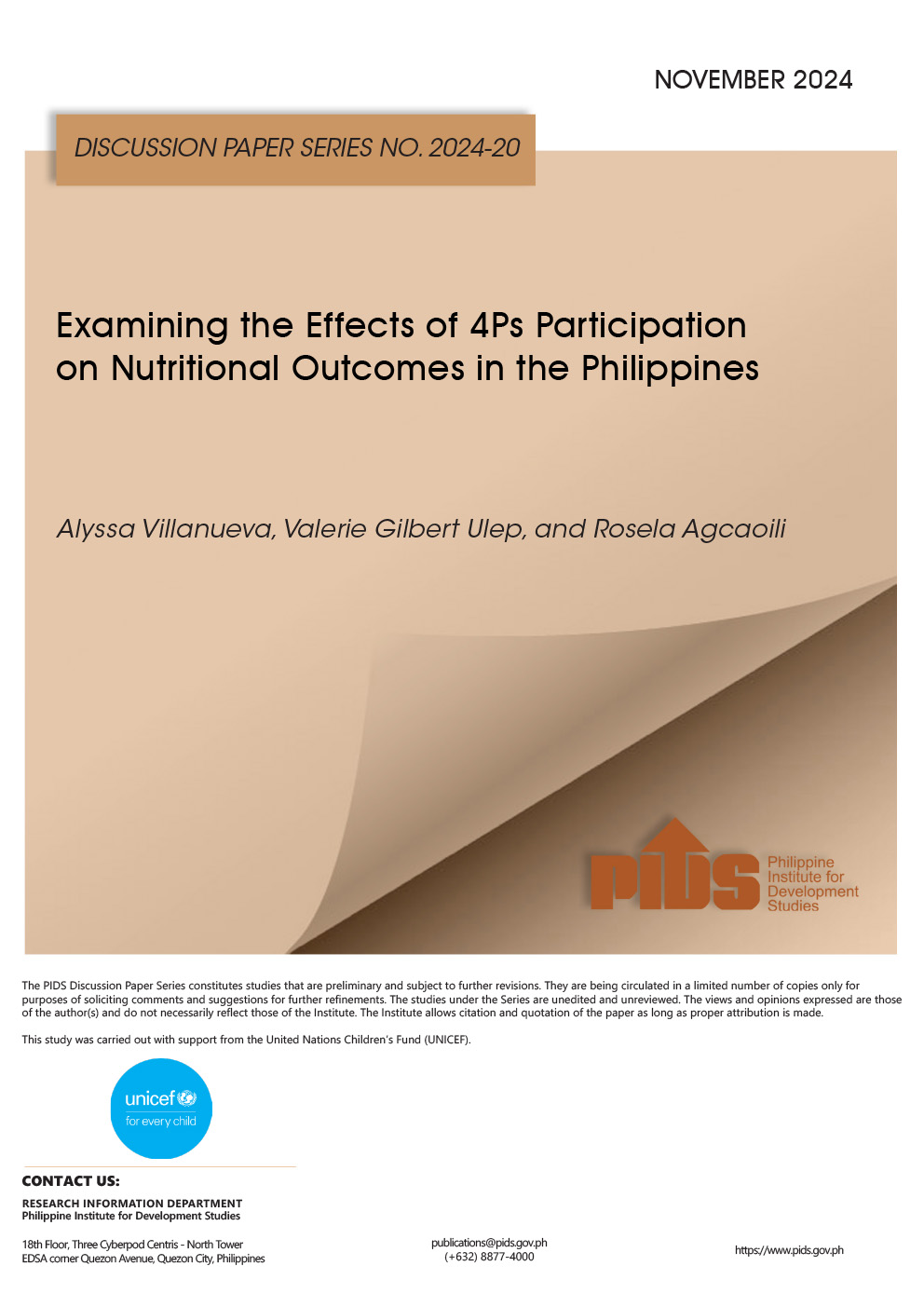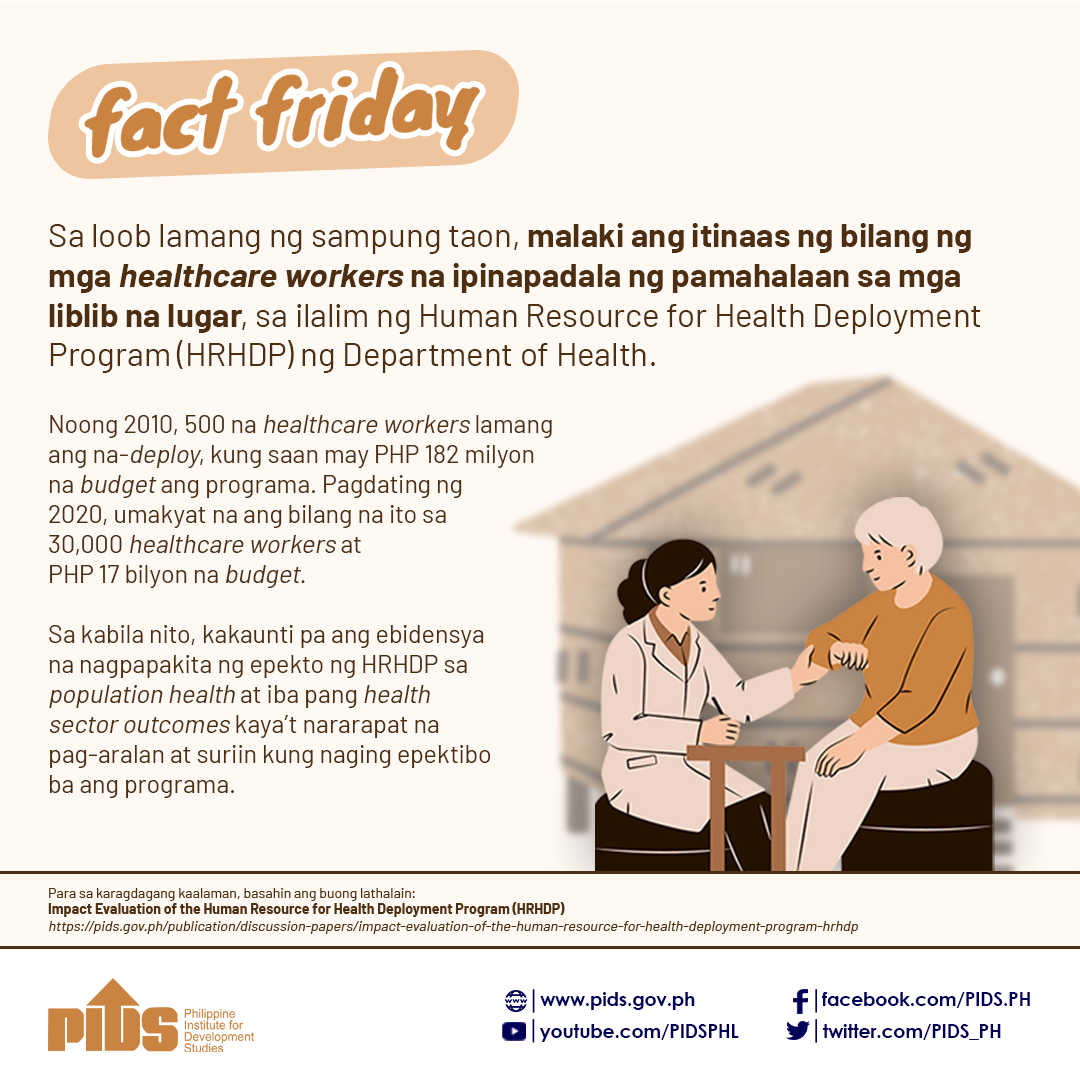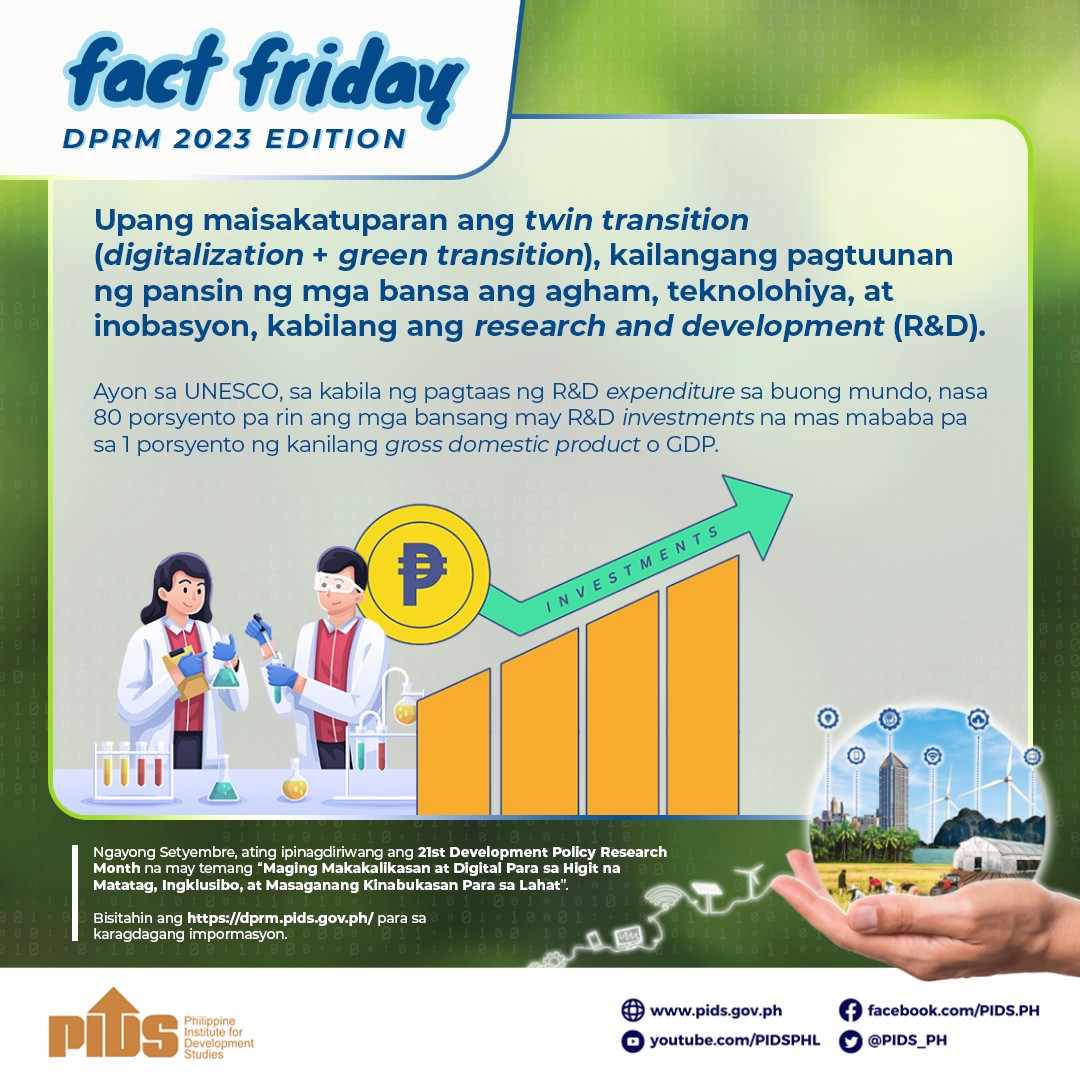The Philippine Institute for Development Studies (PIDS) has called on the government to increase the budget per child under the school-based feeding program of the Department of Education (DepEd).
A PIDS study recommended that the government addresses important implementation challenges, which include increasing the budget per child and for administrative and monitoring purposes.
The initial results of the study were discussed by a panel of DepEd officers and PIDS researchers at a seminar held at PIDS recently.
Most of the discussions revolved around the finer details of the SBFP such as the budget and time constraints on the program.
Beyond implementation and budget increase recommendations, the panel agreed that the SBFP would benefit greatly from strengthening the links of interagency cooperation. Efforts of local government units and other stakeholders should converge to complement SBFP with community-based activities, the study said.
According to the World Food Program, Food For Education (FFE) programs like SBFP in the Philippines is adopted across developing countries "as a mechanism to accelerate the achievements of some of the Millennium Development Goals, particularly those on hunger and poverty, education and gender equality.
PIDS noted that although considered a temporary fix to address large social problems, the SBFP works on the premise that there exists a strong correlation between health, nutrition, and school performance.
The study reviewed the conduct of the SBFP in eight schools across the country during school year 2013-2014. It analyzed the results against the program’s objectives - that 70 percent of the beneficiaries must have been rehabilitated at the end of the 100-120 day feeding program, 85-100 percent of the beneficiaries attend school, and that there is observable improvement in health, nutrition values, and behavior.
The researchers found out that beneficiaries and stakeholders laud the program.
As a result, the health, class attendance and performance, and social behavior of the students improved. The program, the researchers noted, also helped cultivate "a culture of care and active participation among all stakeholders”.
Amid all the success, however, the study points out important challenges, starting with data gathering inconsistencies and the lack of standard weighing measurement./
PIDS urges gov’t to raise budget per child under school-based feeding program











